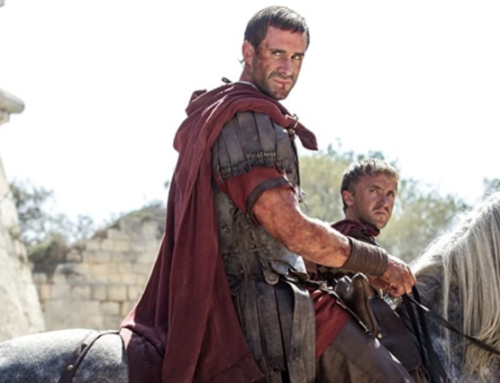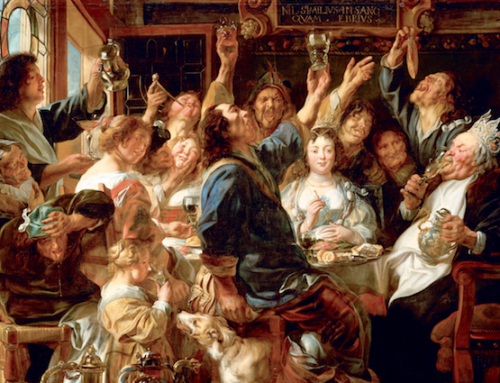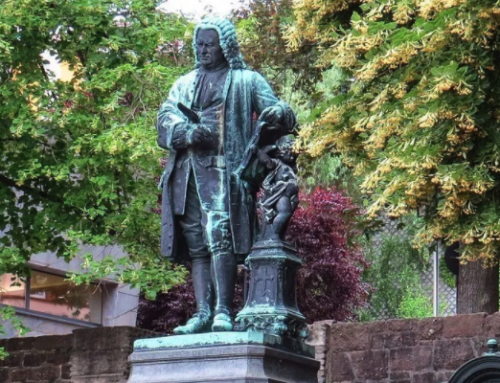 Reprinted from The Guardian (UK)
Reprinted from The Guardian (UK)
Dr. Josh, as everyone calls him, collected me at the Asunción airport in a battered Land Rover that was twenty years older than the young Canadian environmentalist. His chequered wool shirt, worn loose over jeans and a Molson’s t-shirt, surprised me for no good reason; I had expected something more exotic in Paraguay, and less stereotypically Canadian.
“Did you bring your matched set of Purdeys?” he asked semi-facetiously. I explained that not everyone in England owns a pair of shotguns that can cost as much as a Rolls-Royce. Besides, I had no idea what kind of firearms we would use against our unconventional prey. The easy-going young man smiled. “They’ll have spares at the estancia,” he promised.
Six years ago Dr. Joshua Campbell, the former deputy-director of Vancouver University’s Sustainable Wildlife Project, first came to Paraguay little expecting the global controversy that followed. Today his work has legal action pending against it in the International Court of Human Rights in the Hague, launched by Amnesty International and others, and fierce diplomatic opposition in the United Nations, Mercosur and the Union of South American States. Former US Secretary of State Hillary Clinton called Paraguyan government support for his programme “an abomination.”
“Sure, it’s fun,” he laughed self-consciously as we left the sleepy capitol, motoring across the parched brown pampas dotted with small herds of horses and cattle. “But it’s not about fun and it’s not about the money,” he added, referring to the fees charged for hunting licenses (but much less than to shoot conventional ‘big game’ in Africa). “The money merely helps government cover the costs of the project,” Josh explained.
“Our work is really about recognising our place as humans in the broader biosphere, and ensuring true sustainability for all species,” he insisted.
I mumbled something about being unsure of the fun and he broke into a boyish grin. “I guess we’ll see!” he enthused. “The season opens tomorrow!” Inwardly I winced.
Paraguay pioneered what is loosely called Human Resources Ecology (HRE) in 2009, followed by experimental programmes now underway in a handful of African and Southeast Asian countries. An enabling bill has been tabled in Canada’s parliament but will probably not be considered until after the 2013 session. In each case, HRE seeks to control and limit populations of trial lawyers.
Josh explained that, when he first arrived, trial lawyers were the furthest thing from his mind. He came to study the Ochre-breasted Pipit (Anthus natterari) a bird native to Paraguay, Argentina and Brazil that is endangered due to its shrinking natural habitat.
He came to study the Ochre-breasted Pipit (Anthus natterari) a bird native to Paraguay, Argentina and Brazil that is endangered due to its shrinking natural habitat.
“Basically this little bird was, like, getting squished in a crowd of big, angry, NHL hockey-players,” the Canadian explained. “The owners of the powerful estancias, the property developers, the wannabe pillagers and the environmentalists, the groups of citizens who needed space for new homes, the scientists and the government – they all had teams of trial lawyers at loggerheads, so nothing was being done apart from the birds getting screwed. Then I realised that what all teams had in common was trial lawyers; all these rich, greedy, time-wasting hosers!” complained the Vancouver scientist.
A research grant from the Gates Foundation soon helped Campbell, and a team of Paraguayan economists and biologists, to establish that the problem was bigger than assumed. Paraguay’s biggest neighbours, Argentina and Brazil, were litigious and socialist, populist and politically unstable, generating unsustainable populations of trial lawyers who crossed the borders in search of sustenance. Others migrated from as far as Washington DC, New York, London and Brussels. Together with local attorneys they selfishly propelled state intervention, and then litigation, into sectors ranging from the economy and justice to the environment, civil society, transport, agriculture, forestry, power generation and beyond, and stopped everything dead while the lawyers kept collecting their fees. This resulted in, “like, total governmental and socio-economic constipation, dude!” the scientist explained.
“It was basically the same problem for trial lawyers in Paraguay as deer over-populating in Pennsylvania or Ontario. So we use the same culling strategies here. This means that I won’t get a Nobel Prize, but maybe someone will buy me a few brewskies,” the Canadian shrugged.
Eventually we reached our destination, El Rancho de Felicidad, one of the older and smaller of the classical Paraguayan estancias. The relaxed owner, Don Carlos de Chimichangas de Encino de California y Santiago de Compostela (“Call me Chuck”) showed us his estate. Dozens of Paraguayan gauchos loitered about the grounds, their broad-brimmed hats jauntily askew and their silver spurs jingling merrily beneath their horsehide chaps. I asked where were the cattle.
“We have no cattle anymore, señor,” the proprietario replied. “”My lady wife, she is – how you say? – too kind-hearted. So now we raise butterflies.” Chuck treated me to a demonstration which Joshua had seen many times before; armed with butterfly nets the gauchos mounted their spirited stallions and galloped across the pampas while singing their ancient songs. As with commercial butterfly farming anywhere, the captured insects are bred in special greenhouses, while live chrysalises and mounted specimens are sold to collectors, museums and research institutions around the world. His interest in ecology made him an early friend to Josh and a supporter of his work.
say? – too kind-hearted. So now we raise butterflies.” Chuck treated me to a demonstration which Joshua had seen many times before; armed with butterfly nets the gauchos mounted their spirited stallions and galloped across the pampas while singing their ancient songs. As with commercial butterfly farming anywhere, the captured insects are bred in special greenhouses, while live chrysalises and mounted specimens are sold to collectors, museums and research institutions around the world. His interest in ecology made him an early friend to Josh and a supporter of his work.
The inside of his stately whitewashed home, where his ancestors lived since the sixteenth century, was sparsely furnished with dark colonial furniture, silver candlesticks and age-crackled Spanish portraits of dour saints. We were brought cups of cimarrón, or mate, served in (artificial and hence sustainable) tortoiseshell cups with silver drinking-straws; it tasted refreshing, like a hot infusion of pencil-shavings. Don Chuck, as Josh calls him, explained the rules of the cull.
The hunting season is only six weeks long. Trial lawyer populations are monitored every year by Paraguayan environmental scientists in their Departamento de Recursos Naturales. Hunting licenses are awarded prudently and sparingly, by lottery to Paraguayan nationals and at great cost to foreign big-game hunters. “To kill a trial lawyer in Paraguay,” he explained, “we charge foreigners even more than they would pay at home for movie tickets.”
Licensed hunters are forbidden to erect shooting-blinds outside of the national legislature, law courts, town halls or hospital emergency rooms, where trial lawyers are often distracted while stalking their prey. It is also illegal to put out bait, such as piles of bank-notes, which can drive the creatures into a mindless “feeding frenzy.” Hunters are allowed to mimic the cries of humans in distress or present other opportunities for the bipedal predators, he explained, and one of his most successful hunter-friends reads aloud from reports on global warming, attracting herds of slavering attorneys.
Hunters are required to use heavy ammunition such as deer-slugs, he added, so as to kill the trial lawyers swiftly and not to wound them. “If they are injured they suffer,” our host explained, “and then they sue us.”
He took us into a side room where he keeps his trophies. Almost twenty trial lawyers stared mute and sightless, from mahogany plaques on the whitewashed walls beneath a high vaulted ceiling. Several still wore their spectacles; two specimens were bust-length, exhibiting portions of their pinstriped suits. One had its briefcase hanging on a nail beside it. Our host’s favourite was an enormous blonde female, mounted by an expert taxidermist in Madrid who captured her canine teeth exposed in a terrifying snarl. “She was an American from New York; a medical malpractice attorney. At least 220 pounds,” he explained. “I dropped her with one well-placed shot outside of a handicraft shop,” he murmured proudly.
He introduced me to his wife, the formidable Doña Maria (“you may call me Doña Maria”), a tall and dark-eyed woman wearing a long black dress, a lace mantilla, a colonial silver crucifix on a chain around her neck and a green plastic bangle on her wrist that said “Make Poverty History.” She led us into the spartan, candle-lit dining room for a healthy vegetarian collation served on an ancient refectory table. The organic rutabagas, plants which attract butterflies and from which the rutabaga wine was made, were grown on the estate.
I asked if the trial lawyers, or their surviving relatives, suffer from the cull. The eyes of my hostess flashed like black opals: ““Señor! They do not feel the same emotions as we do! The survivors have what they care about most; they have their trust-funds.” She paused to stifle an anguished sob.
“I begged my husband not to bring you here,” she explained, gesticulating with many silver rings on her fingers, as Don Chuck stared painfully into his seventeenth-century pewter trencher full of rutabagas.
“We are an ancient people and proud,” she continued emotionally. “We are tired of uninformed foreigners so judgemental of our ways. We are not cruel! Estamos muy Christiano, muy Católico! We are not savages such as (and here she choked on her words) the Uruguayans!”
We all knew what she meant. For centuries and still, at Ash Wednesday carnival in the Uruguayan capitol of Montevideo, teeming, jeering crowds of locals and international visitors participate in Encierro de los Abogados, the Running of the Lawyers. Nobody, even one who has watched it on film, can forget the terrified expressions of the attorneys who are pelted with stones as they are driven, headlong and pell-mell, down the narrow streets beneath statues of the saints, herded onto the steps of the cathedral where they are flogged into penitence, and then ritually forgiven by the archbishop on behalf of Cristo el Rey.
Our host replied in barely a whisper. “Here in Paraguay, science and faith do not conflict. It is kinder this way,” he explained as his wife made the Sign of the Cross. He urged us to sleep well for we would rise early.
Before dawn we traded yesterday’s travelling clothes for camouflaged hunting togs. I chose a tasteful, two-piece, gray flannel suit worn over a white shirt, Italian necktie and brown English brogues. My host emerged in a three-piece navy pinstripe and a Hermès tie, with Josh in khakis, a polo-shirt and a blazer; Canadian full-dress uniform. Hunting for lawyers is an urban sport and so tweeds are frowned upon.
 Don Chuck lent me his great-grandfather’s 1903 Mannlicher-Schönauer, firing the 6.4x54mm bullet that served the Austro-Hungarian Army so well, and big-game hunters thereafter. He and Josh carried .303 Lee-Enfields of Great War vintage: he disparaged using any weapon more semi-automatic as “like fishing with hand-grenades,” meaning inappropriate for gentlemen.
Don Chuck lent me his great-grandfather’s 1903 Mannlicher-Schönauer, firing the 6.4x54mm bullet that served the Austro-Hungarian Army so well, and big-game hunters thereafter. He and Josh carried .303 Lee-Enfields of Great War vintage: he disparaged using any weapon more semi-automatic as “like fishing with hand-grenades,” meaning inappropriate for gentlemen.
In full disclosure, my editors at The Guardian argued but then agreed that I could go on assignment to hunt trial attorneys, because it contributed to Progressive principles of good governance, genetic diversity and environmental sustainability. Conceivably, it could also help to reduce climate change. However, somewhat legalistically, they refused to pay for ammunition used to kill another human being. That mattered to me less than whether I could pull the trigger: my host sensed it we rode into Asunción.
As if out of nowhere he ruminated aloud: “Men kill for different causes, señor. Young Joshua, here, will kill to save ancient species put on this earth by Almighty God. He will kill so that rare birds and wild butterflies may live. I will kill for my grandchildren yet unborn, so that they may retain family honour, free within democratic communities, free from these unscrupulous bastards whom we hunt. And you will kill for reasons of your own. But believe me, señor, you will kill because you are a man.” Looking out of the window in feigned innocence, Josh began whistling a theme song from a Sergio Leone western.
After this my memories, so emotionally charged, grow hazy and dreamlike. Gray-bearded and hunchbacked Old Diego, the trusted manservant to my host’s grandfather and all of the kin that followed, had built a shooting-blind adjacent to a Starbucks coffee-shop. Only two blocks from the courthouse, it was a perfect location. We crowded inside and waited. It grew stultifying; hot from our breath and the relentlessly unforgiving South American sun. Nearby a pigeon cooed, and then further away a car horn sounded; paradoxically they made the street seem all the more silent. Suddenly, my host rose to his feet and put one hand to his lips.
Gently at first, then growing louder, he called out “Whiplash! Whiplash!” I only realised later that he had spoken in English, American English.
Then Josh and I saw what the keen-eyed aristocrat had noticed first. It was nearly 250 pounds, packed like sausage-meat into a black suit and sweating profusely, lugging a vast legal briefcase while tugging at its tight white collar, looking this way and that for what it believed to be a potential client, money-laden and in distress. It was unmistakably a trial lawyer, and of trophy-winning proportions.
Don Carlos tapped me on the shoulder gently, giving me the honour of firing first, and I lifted my rifle. Then I hesitated at the moment of truth.
“You can do it, hoser!” urged the environmentalist. “Make our own species more sustainable, dude!”
“Viva la libertad y vaya con Dios,” whispered my host.
Visions raced helter-skelter across my mind: a lonely songbird unable to find a mate, the last of its species; an old woman dying slowly and agonisingly of cancer because a cure was still tied up in litigation; homes without electric light and children unable to read; hospitals without nurses due to the cost of malpractice insurance. I knew what I had to do, but I felt as if it were someone else squeezing the steel trigger. I remember neither the muzzle flash nor the recoil.
Don Carlos said it was a perfect shot, and as was his traditional prerogative, he offered me the ears and the briefcase but I demurred.
A policeman came running, summoned by the gunshot, but once he had examined our host’s hunting license he smiled and saluted. “Muy bueno,” he nodded admiringly. A local cafe-owner handed out chocolates as a darkly beautiful Paraguayan damsel – an utter stranger – flung her arms about my neck and kissed me passionately on my lips. Small boys clustered around me, calling me hombre.
A bird landed beside the body, paying it no attention as she burst into song; an Ochre-breasted Pipit singing sweetly for her mate. They would live to nest, as would their many descendents.
“Let’s boogie,” said Josh. “You look like a hoser who could use a few brewskies.” Even though noon was still more than an hour away, he was right.
Books on the people and topics discussed in this essay may be found in The Imaginative Conservative Bookstore.







Words cannot describe how amazing this article is! Stephen, you literally made my week.
Thank you for a much needed smile.